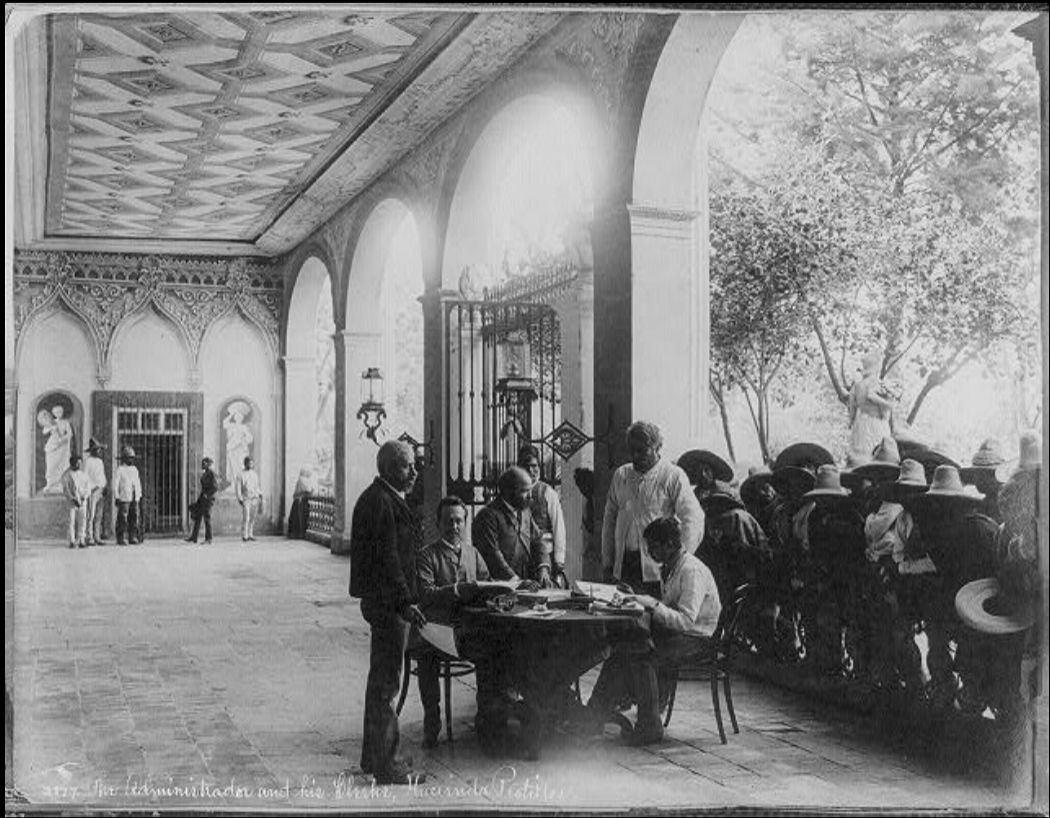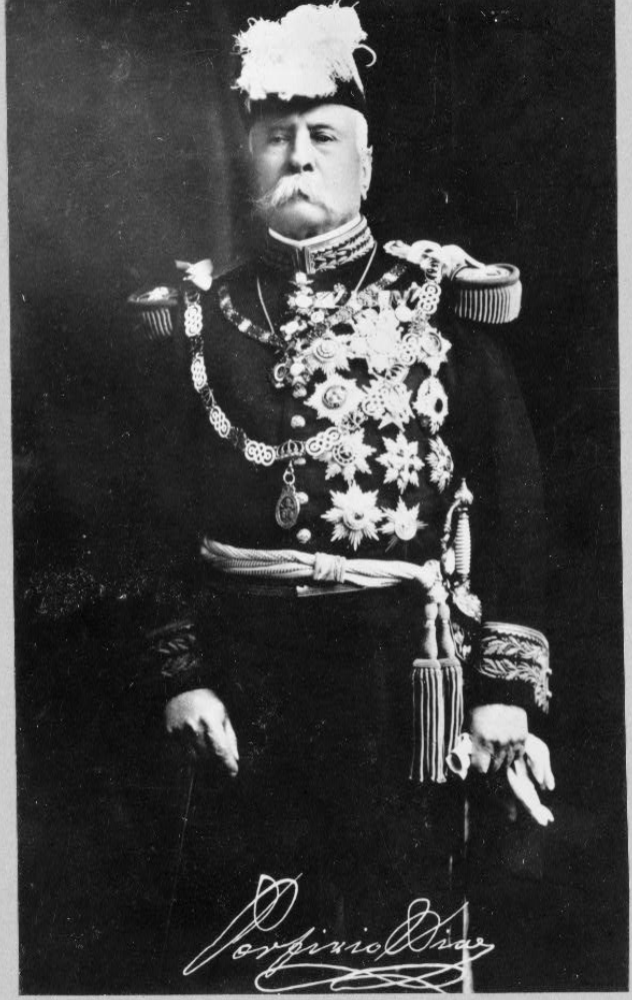The Porfiriato
In 1876, Porfirio Diaz became the de facto dictator of Mexico, beginning an era of Mexican politics known as the Porfiriato.
Diaz believed that the best way to spur economic development was to give land and mining concessions to wealthy landowners and foreign corporations.
Foreign colonization is highly favored by the Government; some companies have already introduced large numbers of Italian settlers, whose newly established colonies offer to prosper. If the European immigration of Saxon origin wished to take advantage of the thousand agricultural elements that exist here in the varied zones of our soil, it would find as many liberties as in the United States and perhaps greater profit.
Foreign capital is attracted by this favorable situation, and banking establishments, previously very rare or little known here, now facilitate the movement and circulation of capital.
Above: Ignacio Manuel Altamirano, Historia y Política de México
From 1880 conditions in Mexico began to be complicated, by reason of the policies of General Porfirio Diaz for the development of the country. General Diaz thought that the best way to develop the resources of Mexico was to favor the establishment of large business enterprises and the formation of large corporations, to which special advantages were offered. He granted large concessions to foreign investors, thus creating enormous monopolies and making more accentuated the contrast between the rich and the laboring classes of the nation.
Above: Luis Cabrera, The Mexican Situation from a Mexican Point of View
Foreign capital employed among us in any type of enterprise, whether agricultural, industrial or mining, is neither harmful to the country nor can its extension in the Republic ever be justified. It is true that the returns from these capitals do not circulate among us and, they go; to give abroad, and this is the only unfortunate thing—not reprehensible—that the use of such capital in Mexico offers, but the funds used in negotiation, tools, buildings, machinery, etc., increase the wealth of the country.
Above: "Los capitales extranjeros en México," El Economista Mexicano

Above: The Administrator and His Clerks. One can barely make out the rumpled clothing of the workers on the railing.

Above: Porfirio Diaz
The focus on elite and business interests was at the expense of the living conditions of working-class laborers and indigenous groups.
I have seen these mines, where the hovels of the workers are infinitely wretcheder than the slums of Mexican towns. For example, the American Smelting and Refining Company’s properties at Santa Eulalia, where they’ve built a church for the workers to keep them contented, though they crush strikes unmercifully and herd the poor devils into the filthiest huts; where such is the good feeling between miners and operators that the latter don’t dare go down into the village at night.
Above: John Reed, "What about Mexico?"
And what about the plantation owners? They cynically protest that theirs is not a system of slavery. By no means. It is a purely contractual agreement. Yes Sir, the worker signed the contract. And for this reason, he is obliged to the circumstances in which he finds himself. . . . What the upright plantation owners do not say is that in- stead of the three pesos a day promised by the enganchador, the salary stipulated in the contract, which the illiterate worker signed with the mark of an X, was only later filled in by either the enganchador or the plantation owner. Wages are customarily set at fifty cents a day.
Above: Enrique Flores Magón, "Valle Nacional."
However, there are private ills that, while clamoring for all kinds of sympathy, fall largely beyond administrative action; such is the case of those that afflict the class [of striking workers and peasants] you so honorably represent.
Above: The secretary of the Treasury Matías Romero Avendaño's "Letter to Striking Workers."
Furthermore: A government that is made up of ambitious men who tire the patience of the people with their criminally self-interested activities, elected by the worst of them in order to help them get rich: Mexico does not need this....Each Mexican who is mistreated by foreigners is worth the same or more than them, if he unites with his brothers and demands his rights.
Above: "The Cananea Strike: Workers' Demands."